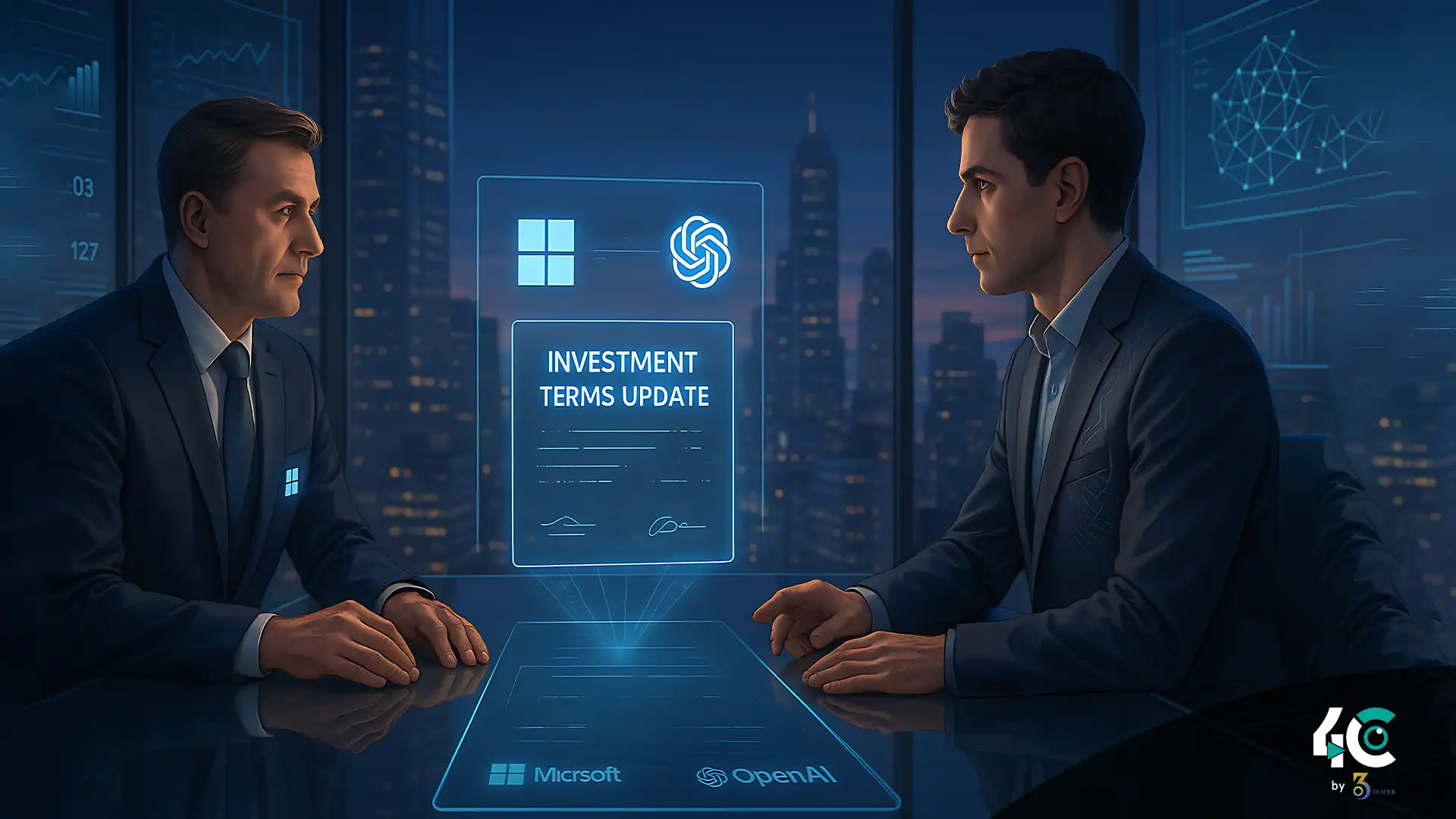The Microsoft-OpenAI partnership restructuring is underway as both companies renegotiate terms to align with OpenAI’s evolving corporate structure and Microsoft’s strategic interests. This includes discussions on equity stakes, revenue sharing, and long-term collaboration plans.
Microsoft and OpenAI have decided to revamp their partnership
In a big change, Microsoft and OpenAI are overhauling their important partnership, a major boost for the two companies. The tech giants are apparently in talks to renegotiate the terms of their investment deal. This could see Microsoft lose part of its equity stake in OpenAI. In exchange for the equity stake, the tech company seeks long-term access to OpenAI’s AI technology after the agreement expires in 2030. OpenAI is undergoing a major revamp and is changing from a non-profit to a public benefit corporation (PBC), as per reports from the New York Times and Wall Street Journal. This hybrid structure allows OpenAI to chase profits while still serving the public good under the auspices of its non-profit parent.
Since 2019, Microsoft has invested more than $13 billion in OpenAI, becoming a crucial partner for the AI giant. But as OpenAI changes, the terms of its partnership with Microsoft will also need to change. The renegotiation shows that OpenAI wants to move in a new direction that allows them to pursue innovation and also fulfill their ethical obligations, and that Microsoft will still be able to use the AI.
Why the Restructuring Matters
OpenAI’s move to become a PBC shows a potentially smart strategic shift in the face of increasing scrutiny. In 2015, OpenAI established itself as a nonprofit with the goal of advancing artificial intelligence (AI) technology for the betterment of humanity. However, it soon came under pressure to make money and scale its processes. Critics pointed out that greater commercialization would undermine its founding intent.
The restructured business model will allow OpenAI to pursue profit-making activities while remaining committed to the ethical development of AI systems. OpenAI maintains a non-profit division with ultimate control, ensuring decisions align with its mission.
The stakes for Microsoft are significant. A tech giant that received unusual early access to OpenAI’s improvements appears to be Google, which is well-known for its well-researched, innovative project work. The updated agreement may position OpenAI for a potential IPO in the future, altering the dynamics of their partnership.
Controversy and Criticism
The restructuring has not been without controversy. Elon Musk is one of OpenAI’s original co-founders; however, he has been vocal about his objections to its plans as it continues to move away from open-sourcing its technology and toward profit. OpenAI leaders and the board have rejected Musk’s $100 billion buyout offer.
Musk is doubting the legality of OpenAI’s transformation. Some critics believe that the move undermines the firm’s mission, causing them to question its ability to balance profit and public accountability.
Despite all the challenges, OpenAI’s board remains committed to ethical innovation. The PBC model, claim the authors, creates a way to realize AI technology without compromising on the organization’s goal.
What’s Next for the Partnership?
Renegotiating this shows just how challenging it is to balance innovation with profit and public trust. Microsoft aims to gain long-term access to OpenAI’s technology to stay ahead in the competition for AI services. A revised partnership with Microsoft allows OpenAI to have room to grow while still being able to hold on to its values.
The fallout from this transition will not only affect the two organizations but also the future of AI itself. Will OpenAI achieve its goal of helping humanity and making money? How will Microsoft play its part in this new era of collaboration?
Conclusion
Through Microsoft and OpenAI’s renegotiation, we see how innovation, ethics, and commerce are inextricably linked in the technology industry. OpenAI is required to balance its high-minded objectives with the market realities as it transitions to a public benefit corporation.
For Microsoft, not having access to OpenAI’s technology would impede its ability to compete with Google in AI. OpenAI must navigate external pressures and ongoing discussions as it progresses with its initiatives.
It’s clear that the choices we make today will influence the course of artificial intelligence development for many years. How these two technology giants reshape their relationship could set an example for how we develop responsible AI in an increasingly complicated world.



























